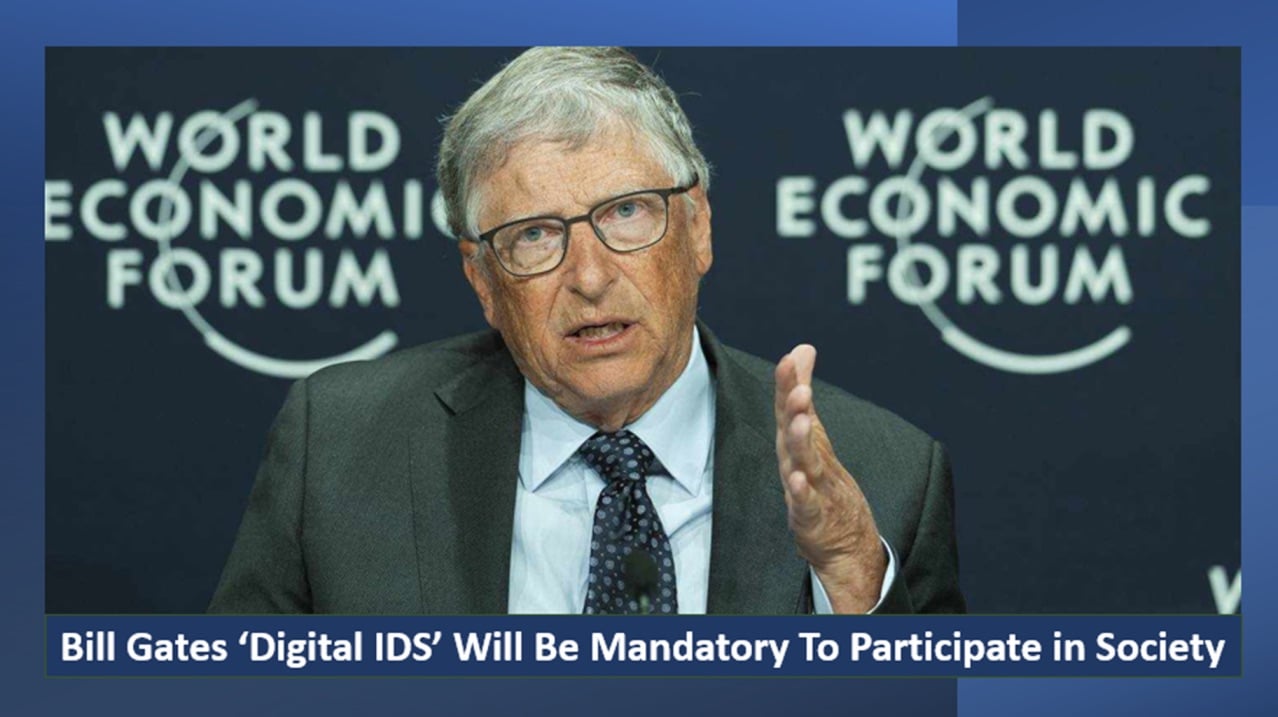Broken by Design: Why the Elites Want Everything and Everyone to Have an “Expiry Date”
Is the proliferation of poor quality products, services and talent part of a creative destruction process under the New Normal – leading to universal surveillance?

All Global Research articles can be read in 51 languages by activating the Translate Website button below the author’s name.
To receive Global Research’s Daily Newsletter (selected articles), click here.
Click the share button above to email/forward this article to your friends and colleagues. Follow us on Instagram and Twitter and subscribe to our Telegram Channel. Feel free to repost and share widely Global Research articles.
***
“They don’t make them like they used to anymore” is an ancient lament that has resonated through the ages in various forms. It applies both to humans and their material outputs. The Greek philosopher Socrates had this to say of the youths of his day (circa 470 BC):
“Children; they have bad manners, contempt for authority; they show disrespect for elders and love chatter in place of exercise. They no longer rise when elders enter the room, they contradict their parents and tyrannise their teachers. Children are now tyrants.”
Juvenile absolutists can indeed become thorns in the societal flesh. Think of the routine theatrics of a young Scandinavian “environmentalist” who is on a mission to save humanity? Hobnobbing with leaders who wage “eco-friendly” wars seems to be part of that salvation process.
The prophet Isaiah, who preceded Socrates by three centuries, summed up this absurdity very well (Isaiah 3:12):
My people — children are their oppressors, and women rule over them. O my people, your guides mislead you and they have swallowed up the course of your paths”. (Note: Only in a mad juvenile world can women and girls be violated by males claiming to be otherwise in designated bathrooms!)
So, are we living in an era where humanity is being led along a tragic “course in their paths”?
How are our median economic, environmental, geopolitical, societal and technological conditions faring?
An argument can be made that the malaise is systemic and global. Technology, in particular, is universally gauged by the quality of products but these now generate a daily tsunami of scathing reviews and complaints.
Household products and popular gadgets are becoming more fragile and less durable by the day in spite of their “energy efficiency” and “eco-friendly” stamps.
Much like the manufactured stalwarts of Gens X, Y and Z, more money seems to be spent on PR blitzes than on quality control.
In fact, product regression was part of a plan first articulated in 1932 by American real estate broker Bernard London. In a paper titled Ending the Depression Through Planned Obsolescence, London began his pro-corporate spiel by paraphrasing the notorious Thomas Malthus, who, in 1798 foresaw a future Hobson’s Choice between population growth and food production.
London’s paper was published at the height of the Great Depression, when the vast majority of consumers had lost their spending power. As a result, the shelf-lives of consumer items were being extended via ingenious means. London however viewed that as a cardinal obstacle to progress.
In his rather meandering tract, London complained that
“people everywhere are today disobeying the law of obsolescence…
They are using their old cars, their old tires, their old radios and their old clothing much longer than statisticians had expected on the basis of earlier experience.”
Quality surplus products, including buffer food stocks in granaries, were making “new production unattractive and unprofitable”. He omitted to mention that the population surge of the 1930s would have resolved this imbalance if not for the mass impoverishment caused by runaway Wall Street greed. Just when did the production of durable products become a socioeconomic problem?
We see this sinister logic being repeated nearly a century later under different pretexts. The European Union and Britain, for example, have pledged to ban new diesel and petrol cars from 2035 onwards. This climate-linked policy has also resulted in senseless campaigns against livestock and vegetation.
London’s solutions also appear to foreshadow the Great Reset:
“I would have the Government assign a lease of life to shoes and homes and machines, to all products of manufacture, mining and agriculture, when they are first created, and they would be sold and used within the term of their existence definitely known by the consumer. After the allotted time had expired, these things would be legally “dead” and would be controlled by the duly appointed governmental agency and destroyed if there is widespread unemployment. New products would constantly be pouring forth from the factories and marketplaces, to take the place of the obsolete, and the wheels of industry would be kept going and employment regularized and assured for the masses.”
It gets worse. London urged that “taxes should be levied on the people who are retarding progress”.
Ergo, the world needs to punish individuals who conserve resources for the sake of corporations which generate disposable junk on an industrial scale, straining our natural environments in the process.
And just how do you tax people over clothes and shoes that come with an officially-mandated expiry date?
Will electronic micro-sensors be embedded into products of the future? Likewise, will humans be cattle-tagged with similar sensors to ensure consumerist compliance and the profitability of corporations?
 Such a universally panoptic regime is no longer a far-fetched prospect. According to the Kenyan Post, the Bill and Melinda Gates Foundation (BMGF) has just inked a deal with the Kenyan government on the roll out of a third-generation Digital Identification Document (ID) system dubbed Maisha Namba.
Such a universally panoptic regime is no longer a far-fetched prospect. According to the Kenyan Post, the Bill and Melinda Gates Foundation (BMGF) has just inked a deal with the Kenyan government on the roll out of a third-generation Digital Identification Document (ID) system dubbed Maisha Namba.
The ID will be “assigned to every Kenyan at birth, and will be used from birth to death”. If details of this deal appear scant, it is because “most of the engagements” between Bill Gates and the Kenyan government have been “shrouded in secrecy”, as the Post noted. How this squares up with the BMGF’s decade-old commitment to the International Aid Transparency Initiative (IATI) is an open question.
But it gets worse. Bill Gates, along with the United Nations Development Program (UNDP), has announced plans to roll out “digital IDs” worldwide by the year 2030, and they will be mandatory for people who wish to participate in society, say Reclaim the Net, who advocate for free speech and individual liberty online. Talk about the Mark of the Beast being unveiled out in the open! This is the “New Normal” of the World Economic Forum (WEF); one which effectively plots and determines the “course of your paths” as foretold by Isaiah.
 Furthermore, the WEF’s mantra of “you will own nothing and be happy” by 2030 is only six years away.
Furthermore, the WEF’s mantra of “you will own nothing and be happy” by 2030 is only six years away.
Yet nothing concrete has appeared from Davos’ utopian gumbo of Artificial Intelligence, the Fourth Industrial Revolution, Big Data, Reskilling and Upskilling and an assorted melange of similar buzzwords.
Where are the building blocks of this transformative global shift? Except for reductionist catchphrases and patently anti-human pronouncements, one would be hard-pressed to even detect the first scaffolds of the post-2030 global construct.
But like London who avoided fingering Wall Street for the manifold failures of his generation – which inevitably led to WWII and hundreds of millions dead – our unelected global technocracy is blaming our current planetary failings on everyone but themselves. And they can get away with these travesties as humans are becoming as fragile and as obsolete as the products they consume.
*
Note to readers: Please click the share button above. Follow us on Instagram and Twitter and subscribe to our Telegram Channel. Feel free to repost and share widely Global Research articles.
This article was originally published on RT News.
Dr. Mathew Maavak, who researches systems science, global risks, geopolitics, strategic foresight, governance and Artificial Intelligence. He is a frequent contributor to Global Research.
Featured image is from SHTFplan.com

